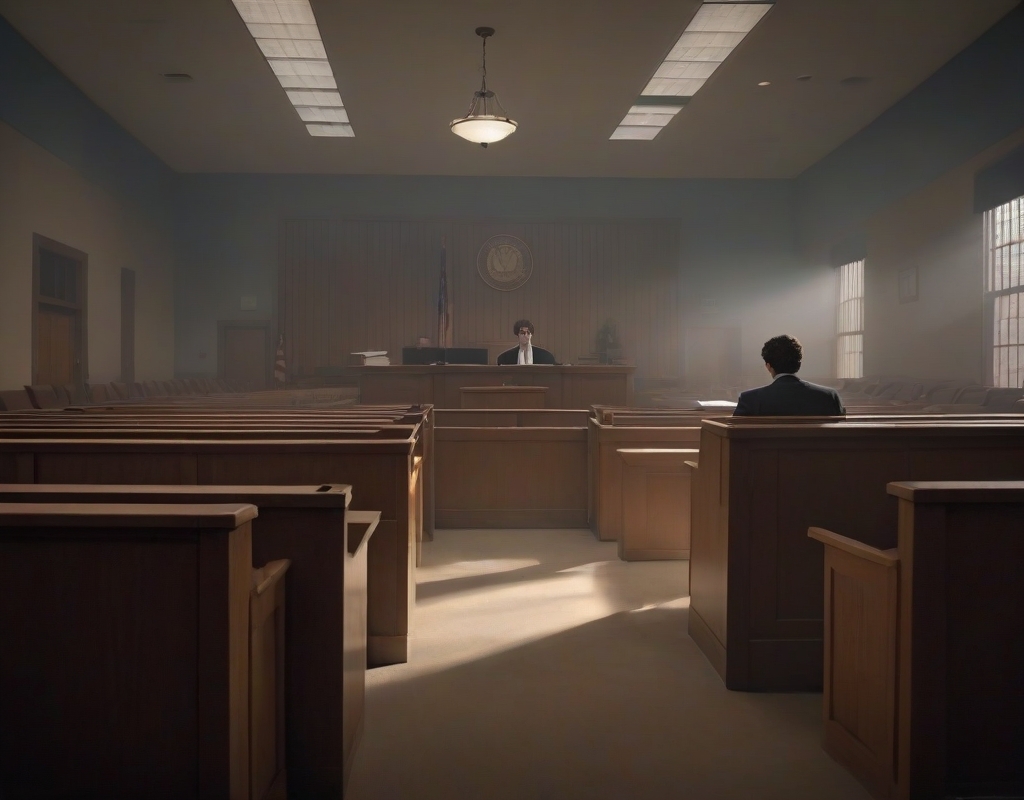Since their imprisonment in 1996, the Menendez brothers, Erik and Lyle, have been entrenched in public discourse and legal debates following their involvement in the tragic murders of their parents, José and Kitty Menendez, in their Beverly Hills home. The case, known for its macabre details and intense media exposure, initially concluded with both brothers receiving life sentences without the possibility of parole, after a jury found them guilty of first-degree murder.
The brothers had argued in their defense, claiming that they were compelled to act out of a desperate response to years of severe sexual and emotional abuse by their father, with their mother as a complicit or passive participant. This defense, deeply divisive and stirring widespread public emotion, failed to exonerate them in their subsequent trials.
In recent developments, the prospect of clemency has been brought to light, initiated by advocacy from former Los Angeles County District Attorney George Gascón. He called for a reevaluation of the case based on newly revealed evidence and the brothers’ behavior during their incarceration, suggesting they might be victims as much as they were perpetrators.
The recent decision by California Governor Gavin Newsom to postpone any clemency decisions reflects a measured approach, providing time for new District Attorney Nathan Hochman to thoroughly review the case. This pause in proceedings underscores the complexities and sensitivities involved in revisiting such a high-profile case, with potential implications that extend far beyond the immediate legal context.
Nathan Hochman has announced his commitment to a meticulous review of the Menendez brothers’ case, an undertaking set to include an examination of extensive trial documents, interviews with key participants from the trial, and new testimonies that might have emerged. The staunch approach taken by Hochman illustrates the gravity with which this review is being treated—a comprehensive assessment aimed at ensuring justice is served, acknowledging any new evidence that may influence the outcome.
The broader legal and societal implications of this case are significant, touching on issues of familial abuse and its psychological effects, the potential for rehabilitation, and the justice system’s handling of such complex human elements. As understandings of psychological and emotional abuse have evolved, so too has public perception regarding the Menendez brothers’ motivations. This shift reflects a broader societal recognition of the deep and lasting impacts of abuse, which complicates the narratives around crime and punishment.
Experts in legal ethics and criminal justice reform have also voiced opinions on the possible outcomes of clemency. Some advocate for the recognition of the brothers’ efforts in rehabilitation and personal development during their time in prison as factors worthy of consideration. These include educational pursuits and the implementation of programs aimed at helping other inmates. However, there remains a contention from other quarters, emphasizing the severity of the brothers’ crimes and the lasting impact on the victims’ family, which might preclude the granting of clemency.
The ongoing debate encapsulates fundamental issues relevant to modern justice systems, including the balance between punishment and rehabilitative justice, the role of historical abuse in criminal behavior, and how best to achieve closure for all parties involved.
Governor Newsom’s decision to defer the clemency decision allows for a thorough re-examination of the Menendez brothers’ case against contemporary standards of justice and understanding of psychological impacts of abuse. This decision places a significant responsibility on Hochman, whose findings will likely influence not just the future of Erik and Lyle Menendez, but potentially set precedents regarding how cases involving similar claims of abuse are treated legally.
The true impact of Hochman’s review will only be realized once his conclusions are drawn and their implications for the Menendez brothers’ sentences are fully understood, expected by December 11. This review not only holds significant weight for the brothers and their family but also for broader legal principles, societal values concerning justice, and the treatment of crime rooted in familial dysfunction.
As this process unfolds, the Menendez brothers’ case remains a poignant discussion point for those interested in the intersections of criminal justice, psychological trauma, and societal change, challenging ongoing perceptions and potentially setting a course for future legal considerations regarding similar cases. This holistic examination will hopefully provide clarity and closure to a complex and deeply troubling chapter of criminal justice history.




